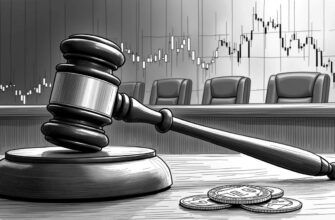We live in a technologically accelerating world defined by hyper-connectedness, globalization and instant access to products, services, and information.
Technological innovations are changing everything from people’s behavior and expectations to how they understand the world.
As global commerce continues to digitize and mobile technologies proliferate, consumers are becoming intolerant of any inconvenience. On-demand 24-hour access to products and services is now expected.
Beyond convenience, new technologies are also enabling consumers to gain an unprecedented window into the global economy and the opaque supply chains that fuel it.
Issues such as worker exploitation and environmental degradation are more visible to the public than ever before. As a result, consumers are demanding increased levels of transparency and accountability.
They are reimagining a fairer, more sustainable economy and holding companies accountable for their actions by changing purchasing habits.
The strain on industry to deliver speed, convenience and transparency have been exacerbated by the globalization of the world economy.
Companies are now not only required to compete against local competitors but international players as well.
Competition is fierce and pressures to find cost and efficiency savings are growing.
Complex global supply chains are also proving vulnerable to counterfeiting and piracy and exposing companies to increased operational risks. The production of fake goods from clothes and electronics to counterfeit medicines pose a substantial threat to consumers as well as the security, reputation and brand quality of companies in almost every industry.
In response to the profound social, technological and economic forces bearing down on industry and the global economy, governments have begun changing the rules of the game as well.
The introduction of new regulations and the need to operate in several jurisdictions is forcing companies to constantly and quickly adapt to changes or face a dire new reality defined by permanent compliance upheavals and increased reputational damage.
To meet these diverse challenges which threaten competitiveness demands that companies transform the supply chains which lie at the heart of their operations.
- Decades-old supply chain systems are becoming unmanageable
- Delivering the system-wide visibility needed to enable transparency, traceability, accountability, and efficiency
- Centralized supply chains cannot deliver system-wide visibility
- Using blockchain for supply chain to meet today’s imperatives
- Smart contracts can help automate inefficient trade finance processes
- Moving toward the supply chain of the future
Decades-old supply chain systems are becoming unmanageable
Developed in large part decades ago, the supply chains of today have become difficult to manage and incapable of supporting the complex, on-demand and geographically dispersed production and supply cycles which characterize the globalized digital economy. [1]
Centralized and outdated supply chain systems simply do not have the capacity to deliver the systemic visibility required to enable the transparency, traceability, accountability, and efficiency needed in today’s economy.
While some leading companies have begun to understand that transparency, traceability, and accountability in global trade is now a vital competitive advantage in the emerging world of conscious capitalism, more must be done.
Recognizing the new imperatives of global trade and competitiveness is only the first step.
For companies looking to cement their place in tomorrow’s economy, there is a pressing need to seek out innovative technological tools like blockchain that can deliver the foundational supply chain transformations necessary to ensure competitiveness.
Delivering the system-wide visibility needed to enable transparency, traceability, accountability, and efficiency
In the late 90’s Gartner Analyst Arthur Mesher released an influential set of research on supply chain management titled “The 3 V’s of Supply Chain, Visibility, Variability and Velocity.
Since then, improving the level of visibility in supply chains has become a top priority for most supply chain managers and the companies they work for.
“Almost like the search for the Holy Grail, the quest for greater visibility has similarly been driving supply chains across the globe for the past decade.” [2]
Why is visibility so important?
Visibility is the key enabler of transparency, traceability, accountability, and efficiency. Without it, it’s virtually impossible to optimize a supply chain.
Transparency, traceability, accountability, and efficiency have always carried varying degrees of importance. But, changes in consumer expectations, technological advances, increased complexities in global supply chains and rising compliance burdens have now made them more critical than ever before to a company’s competitiveness.
Let’s take a deeper look into why this is the case.
The transparency imperative
Supply chain visibility and transparency are often referred to interchangeably by supply chain professionals. There is, however, an important distinction that requires clarification.
While visibility relates to an ability to see across a supply chain, transparency refers to a capacity to share internal practices with external stakeholders such as customers, community groups, and governments.[3]
So, with this in mind, it’s critical to understand that without visibility, complete transparency is an impossibility, as companies themselves remain unable to see what is going on inside their supply chains.
The capacity to see into a supply chain on a granular level and be able to share the processes involved with external stakeholders has become paramount for companies today as it sends a signal of credibility and trust to consumers that are crying out for openness.

A public consciousness is growing as consumers gain a better understanding of the detrimental role corporations and their wasteful supply chains have on the world’s finite natural resources and their health.
“Greater transparency is an unstoppable force. It is the product of growing demands from everybody with an interest in any corporation – its stakeholder web – and of rapid technological change, above all the spread of the Internet, that makes it far easier for firms to supply information, and harder for them to keep secrets.” – Don Tapscott
Today’s consumers are consciously thinking about their purchases through an ethical paradigm and boycotting companies that remain closed and secretive. Transparency is now an emerging default for competitiveness.
The traceability & accountability imperative
There are several driving factors behind the need for companies to develop enhanced supply chain traceability and increase their ability to assign accountability.
As part of the ‘conscious capitalism’ movement toward a more sustainable, fairer, and transparent system of global trade, consumers are demanding to know where and how the products they buy get made.
Product provenance is now an essential consideration for many consumers when purchasing goods and services.[4]
The proliferation of counterfeit goods which has led to growing consumer concerns over authenticity is another driving factor.
Counterfeiting has caused a decline in consumer trust and reputational damage to brands across almost every industry. It has even resulted in significant health and safety issues for consumers, especially in the food and pharmaceutical industries.
The widespread contamination of infant formula in China, which led to the deaths of infants and young children, is one such example.[5]
“Granular evaluation of provenance of physical goods–e.g. tracking ingredients of a pharmaceutical or demonstrating authenticity of luxury goods–has often not been possible with today’s items that are produced and transported in complex, inter-organizational, often internationally-spanning supply chains.”[6]
A 2017 study from Global Financial Integrity (GFI) estimates the global trade value of counterfeit and pirated goods to generate between US$923 billion to $1.13 trillion annually.
According to a report commissioned by the International Trademark Association (INTA) and the International Chamber of Commerce, the global value of the counterfeit market in 2015 stood at $1.7 trillion.[7]
“Counterfeiting and pirating of pharmaceuticals, consumables, luxury goods, and intellectual property is the biggest single transnational criminal activity, likely exceeding US$1 trillion in retail value.”[8]
Another driving factor is regulatory compliance. Governments have begun introducing game-changing regulations that put unprecedented demands on companies.
Large corporations in the European Union, for example, are now required to file annual reports on their corporate social responsibility, detailing their policies and activities on issues such as human rights and protecting the environment.[9]
Regulations like the European directive on non-financial reporting or the UK Modern Slavery Act, are set to require companies to disclose reliable and transparent information about their business footprint.[10]
Across the Atlantic in the US, former President Obama signed the Trade Facilitation and Trade Enforcement Act (H.R. 644). Section 910 of this law strengthens restrictions on the import of goods into the United States produced with forced labor.
Companies must have a way to conduct granular investigations and measure the impacts of their supply chains to have any chance of complying with these and other regulations.
They will also need to gain an efficient way of showing regulators they are following the rules and have the ability to assign accountability to specific parties for any criminal actions.
Finally, the capacity to find and identify corrosive problems within complex and geographically dispersed supply chains is also critical for operational reasons.
Remember the Chipotle food contamination crisis?
The company had a limited ability to trace and track the different moving parts in their supply chain in real-time rendering them powerless to find the source of contamination after customers began reporting ill. [11]
Chipotle’s share price plummeted over 40 percent as a result.
The efficiency imperative
Today’s supply chains have become incredibly complex, often spanning hundreds or even thousands of stages and dozens of geographical locations.
But much of the supporting infrastructure has remained the same since the advent of the modern supply chain in the early 20th century.
At the same time as supply chains become infinitely more complex, companies are also contending with commodity price fluctuations, diminishing resources, rising fuel and freight costs and economic and political instability as well.[12]
“Simply put, e-commerce has altered the practice, timing, and technology of business-to-business (B2B) and business-to-consumer (B2C) commerce. It has affected pricing, product availability, transportation patterns, and consumer behavior in developed economies worldwide.”[13]
Rising customer expectations for cheap and customized products delivered on demand have added to efficiency pressures. The proliferation of e-commerce has impacted everything from pricing and delivery patterns to consumer behavior.[14]
Additionally, globalization and advances in technology are forcing companies to compete against local and international competitors. Competition is fierce!
From unexpected delays and cost variations to swings in customer demand, supply chains face a plethora of pressures to become more efficient.
Ultimately, businesses that fail to adapt to these new efficiency imperatives will become unable to compete.
Centralized supply chains cannot deliver system-wide visibility
Centralized supply chain systems with siloed and irreconcilable record keeping infrastructures are now impacting the ability of companies to operate.
They are simply unable to provide the system-wide visibility needed to enable transparency, traceability, accountability, and efficiency.
“The trust, transparency and traceability that is desired is hard to achieve in the current infrastructural environment with silo-like back offices. Each company along the supply chain has their own systems, where all transactions are handled in separate databases.”[15]
With piecemeal visibility across the supply chain, companies remain powerless to meet consumer demands for transparency as they have no way of seeing the inner workings of their supply chains.
Granular level tracking of products, the investigation of incidents and the assignment of accountability is also challenging and decision makers have limited access to actionable information as well.
“Traceability has proven to be a difficult task for most companies, and a 2014 report indicated that over 90 percent of the 1,200 firms reporting to the SEC were unable to fully trace the origin of materials in their products and therefore could not guarantee the absence of conflict minerals.”[16]
With no way to gain a complete, system-wide picture of internal supply chain processes or retrieve meaningful information, executives administering over today’s outdated systems are not only powerless to make informed decisions but also incapable of coordinating material, financial and information flows.[17]
Using blockchain for supply chain to meet today’s imperatives
Despite blockchain technology gaining more prominence among supply chain professionals, most executives outside of the tech and financial sectors are yet to understand the technology and its benefits on an intimate level.
Blockchain technology has nothing less than transformational applications in supply chain management.
Using blockchain in supply chains can deliver system-wide visibility across supply chains enabling companies to meet the transparency, traceability, accountability and efficiency imperatives required for competitiveness.
By replacing rigid centralized supply chain systems with a dynamic, decentralized infrastructure, the technology supercharges the ability to track and immutably record the movement of both goods and information across entities on a supply chain.[18]
Transactions that occur on a blockchain based supply chain can involve the transfer of anything of value from physical assets to legal documents.
These asset exchanges (transactions) are grouped together in an encrypted block with other recent transactions. Once validated, each transaction within the latest block of transactions is timestamped and added to an unchangeable chain of blocks in chronological order.
With each time-stamp including a previous time-stamp, an immutable audit trail is created that is visible to all members of the blockchain network, in real time, on an openly shared ledger.
“As revolutionary as it sounds, Blockchain truly is a mechanism to bring everyone to the highest degree of accountability. No more missed transactions, human or machine errors, or even an exchange that was not done with the consent of the parties involved. Above anything else, the most critical area where Blockchain helps is to guarantee the validity of a transaction by recording it not only on a main register but a connected distributed system of registers, all of which are connected through a secure validation mechanism.” Ian Kahn, Technology Futurist
Using blockchain in supply chains provides a unique infrastructure that gives companies the capacity to link physical goods to serial numbers and digital tags and record them on a shared platform.
Granular traceability and auditability of physical goods is now a reality. An efficient method of identifying problems, criminal activities and assigning accountability also becomes possible.

Imagine the transformational advantages delivered by having the ability to instantly inspect an uninterrupted chain of custody from raw materials to end of sale and even to recycling and reuse!
But that’s not all.
There are also profound security benefits. With heavy-duty encryption to maintain security, an open, decentralized framework where transactions cannot be hidden and granular traceability, supply chains powered by blockchain technology are resilient.
Ultimately, by providing system-wide visibility and the ability to record all transactions, blockchain technology changes the game for companies and global trade.
Smart contracts can help automate inefficient trade finance processes
As supply chains have become more complex, often spanning hundreds of stages and dozens of geographic locations, the financing of trade has become a growing nightmare for both providers and many companies as well.
Trade finance today is inefficient, costly and susceptible to illicit activities like fraud.
It involves the coordination of multiple parties and is reliant on manual processing to check contractual rights and obligations, terms for payment and facilitate the delivery of goods and services.
Companies must spend valuable time and money working through mountains of paperwork to review financial agreements and wait on intermediaries to release payments.[19]
Reviews by intermediaries often delay the shipment of goods and version control challenges exist as well, as information gets sent from one entity to another. [20]
Miscommunication and duplication of documents are common, and the risk of fraud and other illicit activities is high.
“All too often, supply chains are hampered by paper-based systems reliant on trading parties and banks around the world physically transferring documents, a process that can take weeks for a single transaction. Letters of credit and bills of lading must be signed and referenced by a multitude of parties, increasing exposure to loss and fraud.”[21]
Trade finance is an area which blockchain enabled smart contracts can make transformational improvements. Smart contracts can facilitate the exchange of money, physical assets or anything of value. [22]
When run on a blockchain, smart contracts become self-executing contracts where enforcement, rights, and obligations, performance, and payment are automatically executed by an autonomous system.[23]
“in a smart contract approach, an asset or currency is transferred into a program “and the program runs this code and at some point it automatically validates a condition and it automatically determines whether the asset should go to one person or back to the other person, or whether it should be immediately refunded to the person who sent it or some combination thereof. In the meantime, the decentralized ledger also stores and replicates the document which gives it a certain security and immutability.” – Vitalik Buterin
Blockchain enabled smart contracts are central to the development of next-generation supply chain platforms as they can automate parts of trade finance, eliminating many of the manual processes and ending the reliance on costly and inefficient intermediaries.[24]
Additionally, smart contracts remove the need to store copies of the same document on numerous databases across various entities, condemning duplications and time-consuming data reconciliation to history.
“Smart contracts represent a next step in the progression of blockchains from a financial transaction protocol to an all-purpose utility. They are pieces of software, not contracts in the legal sense, that extend blockchains’ utility from simply keeping a record of financial transaction entries to automatically implementing terms of multiparty agreements.”[25]
With secure and accessible digital versions available to all parties in a transaction, fraud and other execution risks can also be reduced or even eliminated altogether, as the immutable nature of blockchain enabled smart contracts prohibits manipulation and nonperformance.
Moving toward the supply chain of the future
As the world experiences economic and political volatility, many executives may feel tempted to hold off making fundamental changes to their supply chains.
But inaction is a recipe for disaster.
Centralized supply chain infrastructures that lack basic levels of interoperability do not have the capacity to deliver system-wide visibility, a key prerequisite for the provision of transparency, traceability, accountability, and efficiency.

Executives and decision-makers must understand and internalize the imperatives of the new digital economy.
Supply chain transparency is now non-negotiable. Consumers have realized the limitations of the corporate-led social responsibility efforts of the past and are actively boycotting and shaming companies whose processes remain in the shadows.
Consumers are looking for more than a label and a promise.
They are demanding companies prove where and how their products get made and changing their purchasing habits. In many parts of the world, consumerism has entered into an era of conscious capitalism.
Trust in quality and open accountability is now a signal to markets and consumers that a business is confident and proud of its products.
Looming regulatory challenges must also be taken into account as well. Governments are introducing game-changing regulations that have begun to place unprecedented demands on companies.
Businesses will need to find a way of measuring the impacts of their supply chains and develop the ability to conduct investigations on a granular level to comply with these regulations.
They will also be required to find efficient ways of showing regulators they are following the rules and be able to assign accountability or face debilitating regulatory reporting schedules.
Of course, regulations are one of many reasons that companies must make their supply chains more efficient.
Companies today are not only required to compete against local but also international competitors and deal with volatility on the supply and demand sides as well.
From unexpected delays and cost variations to swings in customer demand, supply chains need to be leaner and more efficient than ever before.
But recognizing the new imperatives of global trade and competitiveness is only the first step. Industry must seek out innovative technological tools that can fundamentally transform supply chain infrastructures and ultimately meet these new challenges.
In blockchain technology, the ability to match the physical supply chain to the financial supply chain, bringing all entities onto a single platform with full visibility is now a reality.[26]
With system-wide visibility over a unified supply chain platform, achieving the levels of transparency, traceability, accountability necessary to remain competitive become possible.
Feel free to email me directly with any questions on using blockchain in supply chains — [email protected]
Anthony is the head of content and research at Intrepid Ventures. He has spent the past several years researching and analyzing technologies and working with a diverse mix of blockchain companies to help them gain insight and develop authoritative content.
Realizing the revolutionary nature of blockchain technology and the existence of a significant knowledge gap among entrepreneurs, industry, and government, Anthony now concentrates his time on creating educational content, researching potential use cases and analyzing the impact of the technology on global industries.
Also published on Medium.







